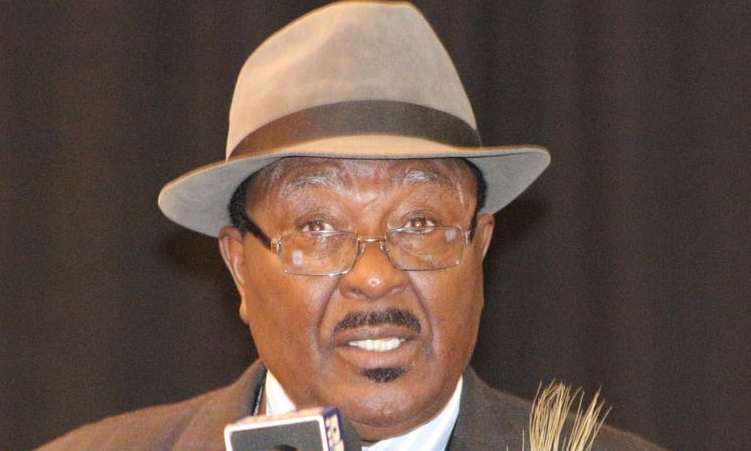A group of traditional leaders are set to meet former first lady Monica Geingos today to discuss the funeral arrangements for president Hage Geingob amid a proposal to mourn the statesman for three weeks.
This has been confirmed by the chief of the !Oe-≠Gan Traditional Authority, Immanuel /Gaseb, who is also the chairperson of the Council of Traditional Leaders.
While in Windhoek, the traditional leaders are also expected to meet with the committee entrusted with Geingob’s funeral.
/Gaseb urged young people to respect this period and refrain from consuming alcohol and dressing “indecently”.
He advises young women to wear a traditional long dress.
“When there is a death, people should not behave as if they are at a cultural festival. People must be quiet and mourn,” he says.
He says those entrusted with the funeral programme should ensure it is translated.
“They should also allow the elders to speak in their vernacular, because people with important messages often refuse to speak up because they are not fluent in English,” he says.
FUNERAL
Details about Geingob’s funeral are yet to be announced.
This will be done after the ministerial committee responsible for organising the funeral has finalised matters around the activities leading up to the event.
The minister of information and communication technology, Peya Mushelenga, on Sunday announced that a national mourning period was to start yesterday and will last until the date of the funeral.
He did not announce the date of the funeral, or what activities would lead up to it.
“During the mourning period, the national flag and all other flags are hoisted at half-mast across the country and at Namibian missions around the globe. Funeral arrangements will be announced in due course,” he said.
Geingob died in Windhoek on Sunday morning.
Historian Kletus Likuwa says the country should have standard procedures in place for memorial and funeral activities when an incumbent head of state dies.
“Perhaps we should learn from nearby countries which have gone through the same process,” he says.
Zambia has often undergone this process with the deaths of their former presidents.
Zambia has a bill on the transitional period and inauguration of a president who dies while in office.
The bill provides guidance for administration and security procedures, and outlines the activities leading up to such a funeral.
Likuwa says it is expected that the mourning practices for Geingob would align with the cultural and religious practices of his ethnic group.
Namibia’s various ethnic groups have special practices for the funerals of leaders and prominent people, including teachers and nurses.
“It is important that we come up with mourning standards that relate to all our cultural practices and traditions, and then learn [from] and compare to other countries which have gone through that,” Likuwa says.
He says these standards should have been in place already as death is unpredictable.
“The committee that deals with state funerals needs to consider coming up with such standards,” he says.
Legal practitioner Mbanga Siyomunji says such procedures have probably not been considered yet.
President Nangolo Mbumba is expected to confer honours on Geingob.
He can, however, only do so on the advice of the National Honours Advisory Committee in accordance with the Confirnment of National Honours Act of 2012.
Stay informed with The Namibian – your source for credible journalism. Get in-depth reporting and opinions for
only N$85 a month. Invest in journalism, invest in democracy –
Subscribe Now!






